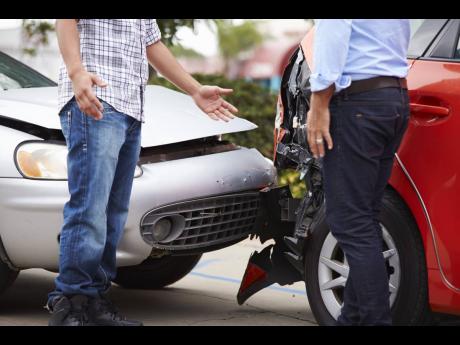Cedric Stephens | Escaping accident liability for borrowed vehicle
ADVISORY COLUMN: INSURANCE HELPLINE
QUESTION: Is the owner of a vehicle exempt from liability if his vehicle gets into an accident about which he was unaware? The vehicle was not stolen but was being driven without the owner’s permission. Could the person who was driving at the time of the collision be deemed an authorised driver?
- M.H., Mona, Kingston 7
INSURANCE HELPLINE: Fifth Sense – www.fifthsense.org.uk – is a United Kingdom charity. Duncan Boak founded it seven years ago. He lost his sense of smell as a result of a head injury. His organisation provides information and help to persons with smell and taste-related disorders.
In conducting research to answer the questions posed by M.H., my curiosity took me in a strange direction. My sense of smell, I later learned, may have played an important part in the writing of this piece.
I recall having a tingling sensation in my nose when I first read the email M.H. wrote. The feeling lasted a fraction of a second. It wasn’t due to a nasal problem.
I found out from Mr Boak’s website that one’s sense of smell is closely linked to one’s memory. In my case, with a database of thousands of insurance questions posed over two decades of writing, my limbic system − the part of the brain that governs the sense of smell − went into overdrive when I absorbed the contents of the email.
It was probably that process that had caused the unusual sensation! My instincts, in some strange way, had detected something different about the two questions.
Additional data confirmed my intuition. M.H. said the queries came from a group of law students. They were sitting under a gazebo at the Mona Campus of The University of the West Indies. The shelter is opposite to Mary Seacole Hall.
The students had witnessed a motor vehicle accident. It had sparked a ‘lively and raucous debate” among them about liability, the Motor Vehicle Insurance (Third-Party Risks) Act or MVITPRA, and motor insurance, and ultimately resulted in the questions.
Accident facts
• One vehicle crashed into the rear end of another on the campus;
• The vehicle causing the accident was driven without the owner’s permission;
• The vehicle that caused the crash is liable for repairing the damage to the other vehicle and for any injuries to its driver and passengers;
• The owner of the at-fault vehicle was abroad when the accident occurred; and
• The driver of the at-fault vehicle is the holder of a driver’s licence and is insured under a policy issued in his name.
This is the background against which the questions were raised. The short and quick answers depend on MVITPRA, the terms and conditions of the policy that applies to the vehicle that caused the collision and, although it was not mentioned, the policy of the at-fault driver.
Section 4 of the Act says “it shall not be lawful for any person to use, or to cause or permit any other person to use a motor vehicle on a road, unless there is in force in relation to the user of the vehicle by that person or that other person, as the case may be, such a policy of insurance … as complies with the requirements of this act”.
I never attended law school. That said, the act implicitly exempts the owner of a motor vehicle from having a policy of insurance where he or she does not “use, or cause or permit any other person to use” it on a public road.
Liability that arises from the ownership and/or use of a motor vehicle in an accident is triggered by negligence – defined as the failure to exercise that degree of care that a reasonable person would exercise under the same circumstances.
Two questions
Are the roads on the UWI Mona campus designated as public roads under MVITPRA?
Shouldn’t the vehicle owner’s liability for the accident be decided on whether he was negligent instead of whether he was aware of an accident?
Motor policies generally provide coverage to anyone that the policyholder authorises to drive or use the vehicle as long as that person:
• Is permitted by law to drive;
• Is not entitled to indemnity under any other policy and as long as the policy schedule and certificate of insurance allows this; and
• Observes and is subject to the terms of the policy.
Since I do not have a copy of vehicle owner’s policy and/or certificate of insurance or any information about at the at-fault driver, I am unable to form an opinion on whether he could be deemed an authorised driver.
There are a few motor policies that automatically provide liability protection when policyholders drive vehicles that they do not own. This could prove useful if the at-fault driver was not considered an authorised driver under the other policy.
Many thanks for asking me to participate in your debate from a distance.
Cedric E. Stephens provides independent information and advice about the management of risks and insurance. For free information or counsel, write to: aegis@flowja.com

